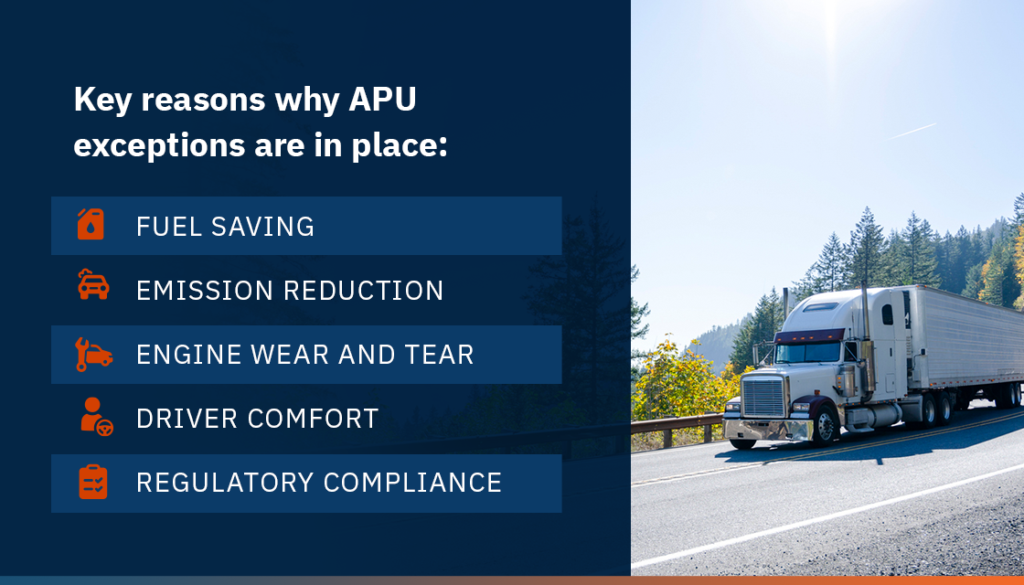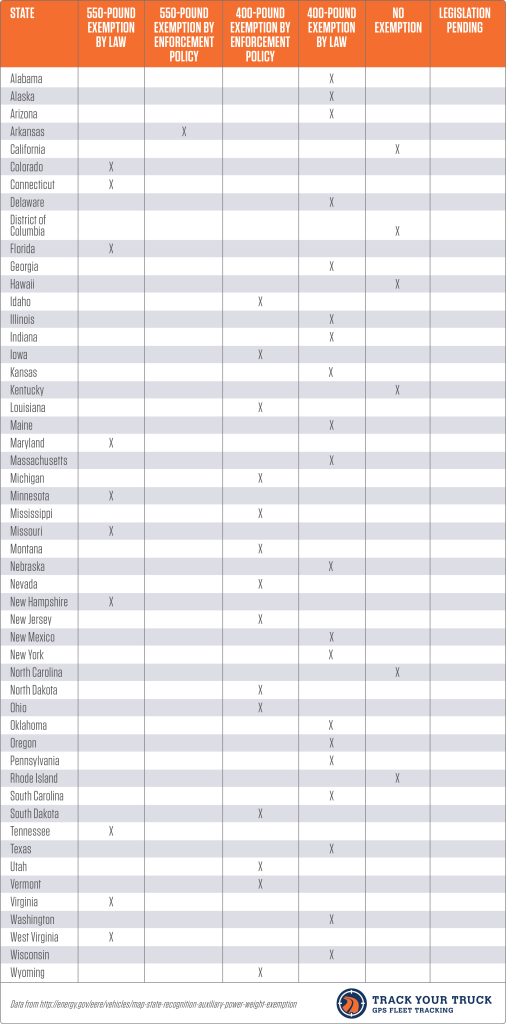
Auxiliary power units (APUs) can help limit fuel use by eliminating the need to run the engine idle while parked, yet allowing the driver to enjoy the vehicle’s comfort systems during rest stops. However, APUs can cause a problem for truckers who regularly drive near the maximum weight limits, as these units weigh several hundred pounds.
Starting in 2005, the government — on both the federal and state levels — tried to create laws that helped overcome this hurdle. To this day, there can be some confusion as the regulations are different between states. This guide helps to clarify that confusion and gives you the information you need to know about APU weight guidance to remain compliant, depending on which states you travel through.
An auxiliary power unit (APU) is a compact but heavy engine installed in trucks to help provide power for various functions when the main engine is off. There are several reasons to use an APU, but primarily, it is beneficial when truckers stop for rest periods. The driver can continue to enjoy the comforts of the cabin without needing to idle the truck’s engine.
An APU allows the driver to use the truck’s amenities, such as electrical devices, the heating and cooling system and essential appliances, while reducing wear on the main engine. It also limits the amount of emissions and fuel consumption.
There are two main types of APUs available, and these are:
Both variations of the APU help truckers save on fuel expenses and comply with anti-idling regulations prevalent in many states.
An APU weight exemption allows trucks with an Auxiliary Power Unit (APU) to exceed the standard weight limits by a specified amount. This exemption is designed to offset the additional weight that the APU adds to the truck, which can be several hundred pounds.
A 400-pound exemption was initially introduced by the federal government under the Energy Policy Act of 2005, initiated under President George W. Bush.
Later, under the Obama administration, in 2012, this amount was increased to 550 pounds under the highway bill MAP-21, otherwise known as the Moving Ahead for Progress in the 21st Century Act.
The exemption helps truckers comply with anti-idling regulations without sacrificing the total cargo capacity. A slight complication is that implementation can vary by state. Truckers traveling over state lines must be aware of different exemptions to avoid penalties.
An APU weight exemption permits trucks with APUs to exceed standard weight limits by up to 550 pounds, typically called an idle reduction weight exemption. This allowance helps compensate for the APU’s weight, enabling the truckers to adhere to anti-idling laws without sacrificing cargo space or weight.
To benefit from this exemption, truck operators must carry proof of the APU’s weight, typically provided on a written certificate from the manufacturer. Ensuring this documentation is readily available during vehicle inspections is essential. Additionally, the driver must prove by demonstration or certification that the APU is operational.
Again, the application of this exception does differ across states. Some states will automatically recognize the federal exemption, while others have unique regulations or require additional paperwork. Truckers should, therefore, be familiar with the specific rules for each state that they need to travel through to ensure compliance and avoid any potential penalties.

APU weight exemptions are crucial for truckers who use auxiliary power units to comply with anti-idling regulations. The following are the key reasons why APU exceptions are in place:
Some states now have laws on the books that outline their exemptions. Others don’t have statutes but enforcement policies that allow for the extra weight — so drivers would not be cited. A few states still do not have an exemption for APUs on the books.
How does this legislation affect you? The accompanying table provides state-by-state information about the current regulations per the U.S. Department of Energy. Remember that state laws can alter, so drivers and fleet professionals should always check state weight allowances before traveling at max capacity.
The following chart, with information sourced from the U.S. Department of Energy, as well as the Federal Highway Administration, provides APU exemption by state:


When you need the most reliable and effective commercial vehicle tracking for companies big and small, Track Your Truck is your solution. We offer a range of products, including our GPS Truck Tracking System — you can include passive, live and satellite GPS tracking depending on your precise business needs.
Be sure to work with the best in the business and request a quote today, or call 888-434-3848 to discuss our solutions and tracking devices.
Feel free to share this on your website: